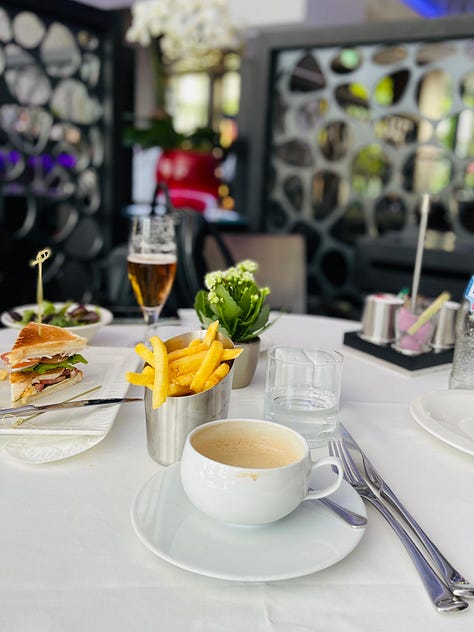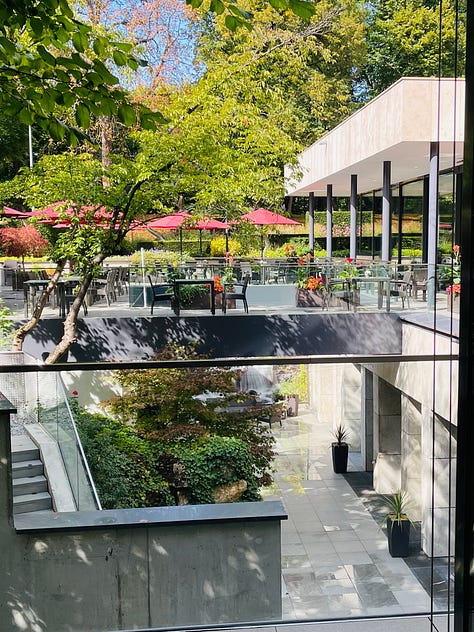The Nuances of Welcome
When Hospitality Takes a Different Form
On my recent trip to Luxembourg, I set aside the comfort of full-service traditional hotels and chose instead the independence of a short-term rental, such as an Airbnb. It was my second experience of this kind in the city, and both stays proved strikingly different.
My aim was to immerse myself in the local culture and experience authentic interactions that enhance my understanding cultural etiquette. Additionally, I appreciate short-term rentals emphasize sustainability and eco-friendliness, allowing me to support local communities while minimizing my environmental impact during my travels.
What they expressed, highlighted not just the convenience of a short-term rental, but also the deeper nuances of warmth and welcome, emphasizing how hospitality can transcend the traditional lobby experience.
The Versatility of Rentals
There is an ease and affordability to rentals that cannot be ignored. They are casual, versatile, and often more spacious than a hotel room, allowing one to feel momentarily “at home” in another city.
For families and groups, they can be especially convenient, with kitchens and living areas that invite shared meals and slower mornings. Independence is part of their charm.



The Missing Touches
Yet what rentals provide in independence, they lack in infrastructure.
Most do not have a restaurant, lobby, or bar to retreat to. There is no concierge to smooth over arrival, no doorman to greet you at the door or hand you an umbrella when the skies turn grey. No coffee shop to occupy during the inevitable wait between flights and check-in.
These may seem like small details, perhaps, but they are precisely the nuances that make a traveler feel looked after and shape how welcome a guest feels.
Planning Ahead as a Guest
Short-term rentals demand preparation. Most operated under tight regulations, releasing an entry code only at 3:00 p.m. sharp and requiring departure at 11:00 a.m., with little room for flexibility.



That meant travelers had to be prepared not only with essentials packed, but also with a sense of how to fill the in-between hours. Scouting a neighborhood café, spa, or park ahead of time often made those transitions smoother.
Hotels, by contrast, softened the waiting period. A lobby to settle into, a café for a light meal, a concierge to hold the luggage, and the reassuring welcome of a doorman or guest desk made arrival feel easier, even before a room was ready.
In spite of the ubiquitous Luxembourg rain, I bridged the hours by visiting a pharmacy and grocery store, booking a spa treatment, and even slipping into a neighboring hotel for coffee.

It turned the waiting into small rituals of transition, though hardly as seamless as being received the moment I arrived.
Amenities, too, required forethought. Unlike hotels, most rentals did not provide shower gel, shampoo, conditioner, or even hand soap. Purchasing these in advance saved unnecessary inconvenience and helped smooth the stay.
Even the pouring rain called for planning, we had to buy another umbrella, whereas in a hotel one would likely have been offered at the door.
Each choice carried its balance of give and take. Hotels impressed with service and readiness, while rentals offered space, independence, and often a gentler price. To each traveler and to each wallet, the decision was simply a matter of what felt the most fitting.
A Thought on Time and Welcome
Perhaps the heart of the matter is time. Arriving at a destination at 10:00 a.m., after an early flight, only to wait until 3:00 p.m. for entry, tests patience. Checking out at 11:00 a.m. and waiting till evening for a late flight home can be equally exhausting after days of travel, meetings, doctors’ appointments, or exploration.
These are not complaints so much as reminders that the structure of hospitality matters deeply to the rhythm of a journey.
Whether in a polished embrace of a full-service hotel or the independent world of short-term rentals, hospitality lies in how one feels received.
Sometimes it is found in the warm smile of a concierge, other times in the quiet privacy of a borrowed apartment. Both have their place, and both teach us, in different ways, about the meaning of welcome.
It leaves one final question to linger in the mind; what does hospitality mean when there is no lobby? How do we carry the essence of welcome with us, wherever we choose to stay?
Sometimes it is by remembering that hospitality is human, not structural. A smile offered, a hand extended, practice gratitude, a moment of grace in transit. Other times, it is by noticing the beauty of the unfamiliar, a walk in the rain, a pause in a city square, or the chance discovery of a neighborhood shop that lingers longer than any check-in time.





I’m beyond obsessed with your writing Ms. Robinson!
As a young leader in hospitality, I was recently reflecting on this exact topic. I gathered that service is simply the standard of how we welcome all guests, hospitality comes in when we apply the nuance of the individual desired experiences to our services so that we make everyone feel at home, because as you said it is different for everyone.
Thank you for another great piece!
One day soon, I'm going to visit you..